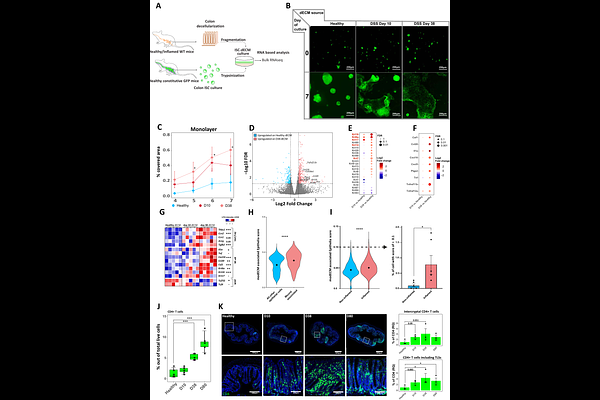Persistent ECM Scarring Reprograms Intestinal Stem Cells to Drive Chronic Inflammation

Persistent ECM Scarring Reprograms Intestinal Stem Cells to Drive Chronic Inflammation
Adir, I.; Sochen, C.; Menachem, A. H.; Lebon, S.; Toval, B.; Holiar, V.; Davidzohn, N.; Salame, T. M.; Rosenhek-Goldian, I.; Savickas, S.; Sabino, F.; auf dem Keller, U.; Biton, M.; Sagi, I.
AbstractTissue regeneration is conventionally viewed as a return to homeostasis. Here, we uncover that the extracellular matrix (ECM) in the colon undergoes a lasting pathological reprogramming following inflammation, forming a remodeled niche - modECM - that persistently disrupts intestinal stem cell (ISC) identity. Using temporal multi-omics, biomechanical profiling, and spatial fate mapping in murine colitis models, we show that modECM, characterized by Collagen XVIII accumulation and immune-driven proteolysis, redirects ISCs toward a wound-associated, squamous-like epithelial state with pro-inflammatory transcriptional signatures. Ex vivo, modECM alone reprograms ISC fate by suppressing Wnt signaling and activating immune recruitment pathways. In vivo, modECM-rich zones sustain T cell infiltration and KRT14 epithelial cell emergence from Lgr5 progenitors. This aberrant epithelial program is mirrored in inflamed rectal biopsies from ulcerative colitis patients. Our findings redefine the ECM as a long-lived instructive compartment that encodes injury memory and promotes maladaptive regeneration, positioning it as a potential therapeutic target in chronic inflammatory disease.